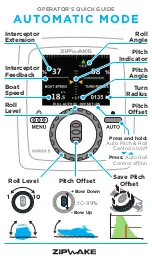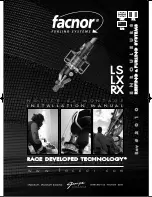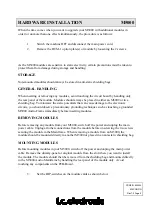
Personal protective outfit
Missing or incomplete protective equipment
increases the risk of health damage. Personal
protective equipment includes, e.g.:
¾
Tight fitting clothes / protective clothing, pos
-
sibly a hair net
¾
Safety shoes
¾
Safety gloves
¾
Safety goggles to protect the eyes against
dust or spray, when working with fertiliser or
liquid fertiliser (follow the instructions of the
fertiliser manufacturer)
¾
Respirator masks and protective gloves when
handling dressing or dressed seed (follow
the safety data sheets of the pickling agent
manufacturers)
¾
Determine the personal protective equipment
for the corresponding work assignment.
¾
Provide effective protective equipment in
proper condition.
¾
Never wear rings, bracelets or other jewellery.
Safety in
traffic
DANGER
No passengers are allowed to ride on the
machine!
¾
Pay attention to the permissible transport
widths and heights. Pay attention to the trans-
port height when passing under bridges and
low hanging overhead power lines.
¾
Do not exceed the permissible axle load, tyre
load bearing capacity and total weight, in or-
der to ensure sufficient steering and braking
capabilities.
The weight of the tractor must at least be
equivalent to the curb weight of the machine.
The front axle must be loaded with at least
20% of the tractor weight.
¾
For machines without brake select the weight
of the tractor and the speed so that the ma-
chine can be managed securely under all
conditions. Remember the extended breaking
distance.
For road transport the machine must be set to
transport position. The machine must have been
folded up and secured, see chapter
Folding in
and
Connecting
and
Transport position
.
¾
Clean soil from the folding areas before fold-
ing in. Otherwise there could be damage to
the mechanics.
¾
If present: Secure the hydraulic cylinders on
undercarriage and drawbar in transport posi-
tion against uncontrolled movements using
aluminium clips, see chapters
Connecting
and
Transport position
.
¾
Assemble lighting, warning and protective
features and check the function.
¾
Before road travel clean the entire machine
from picked up dirt.
Handling is affected by the connected equip
-
ment.
¾
Consider the wide overhang and the centrifu-
gal mass of the implement as well as the filling
capacities, especially when cornering.
Raised machine (Three-point hydraulics):
¾
Consider the limited stability and steering
capability of the tractor.
For transport on public roads, only drive
with
empty seed hopper
.
For transport on public roads pay atten-
tion to the permissible top speed men-
tioned in the type approval!
The specifications in the type approval
document or in the technical data are
decisive for the design dependent top
speed.
Always match the travel mode to the
road conditions to avoid accidents and
damage to the undercarriage.
Consider your personal abilities, carriage
way, traffic, sight and weather conditions.
8
9













































